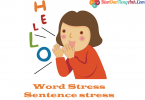Từ vựng IELTS chủ đề Education (Part 2)
Chủ đề về Education luôn là một hot topic khi các bạn tham gia bài thi IELTS, cũng như là trao đổi/ giao tiếp trong cuộc sống hằng ngày. Vì vậy, hôm nay diễn đàn tiếng Anh sẽ chia sẻ với các bạn một số từ liên quan đến chủ đề này và cách sử dụng của chúng một cách đơn giản nhất.
TỪ VỰNG IELTS CHỦ ĐỀ EDUCATION (PART 2)
- Intensive course: lớp học cấp tốc (a short class with an excessive amount of lesson)
Exp: He took an intensive course to pass the requirement of his university.
- Play truant/ truancy: trốn học (to stay away from school without permission) = cut class
Exp: I was so restless and bored at school that I decided to play truant after lunch.
- Teacher’s pet: học trò cưng của giáo viên (a student in a class who is liked best by the teacher and therefore treated better than the other students)
Exp: She is a teacher’s pet. (Cô ấy là học trò cưng của giáo viên)
- Sitting for an exam: làm bài kiểm tra (to take an examination in a formal setting or situation.)
Exp: If my teacher hadn't convinced me to sit for the SAT, I never would have gotten into college.
- Reinforce: củng cố (kiến thức) (to make something stronger, usually by adding more material or another piece)
Exp: Every teacher needs to reinforce his or her lessons with main points to help students understand the lessons better.
- Flagships: những trường danh tiếng (the best or most important product, idea, building, etc. that an organization produces or owns)
Exp: Harvard is one of the flagships with the best teaching quality in the world.
- Rote learning: học vẹt (learning something in order to be able to repeat it from memory, rather than in order to understand it)
Exp: She learned multiplication by rote. (learn/say/do something by rote (học/ nói/ làm thứ gì đó một cách thuộc lòng/ như con vẹt)
- Peer pressure: áp lực bạn bè đồng trang lứa (the strong influence of a group, especially of children, on members of that group to behave as everyone else does)
Exp: In addition, youth in the behavioral risk group were more likely to report negative peer pressure than were youth in the optimal group.
Chúc bạn học tốt!



-145x100.jpg)







Bình luận